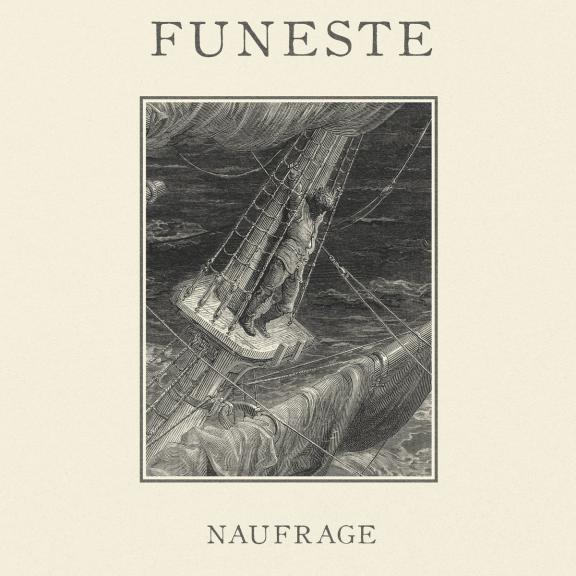Funeste is releasing its first EP on 31 October, a fitting choice for a project with such a... ‘fun’ name. It features Quentin Chazel, singer and guitarist with doom/post-rock band QOYA, whose post-punk roots have sometimes been evident throughout their discography. The artist explains that, ‘at the crossroads between the worlds of the living and the dead, Funeste explores the tragedies of the past that stem from forgotten lives’. Indeed, what a wise choice to release Naufrage at a time when the veil between the two worlds is at its thinnest!
The beginning of the title track has some subtle echoes of atmospheric post-rock. However, very quickly, with vocals reminiscent of sacred music, somewhere between Depeche Mode in terms of tone and Alcest in terms of intonation, Funeste transports us into a more synthetic, introspective universe. We remember how cold wave influences were part of QOYA's DNA, and here they are even more evident. It brings to mind what Ulver has been doing since its mutation, an acknowledged reference, but with a mystical touch à la Dead Can Dance, another reference claimed by the artist, whose voice guides us like Charon on his boat, offering us a cruise along the Styx.
Funeste only has four tracks so far, but takes the time to take us on a journey. It is no coincidence that he chose an engraving by Gustave Doré illustrating the poem The Rime of the Ancient Mariner, about the supernatural adventures of a sailor on a sinking ship, for his artwork. Marine themes are omnipresent, and we drown in an ocean of melancholy, sometimes shaken by slow percussion (Return) or haunted by distant echoes (Polaris, a cold, contemplative and dreamlike odyssey).
Funeste's music is elegant and understated, with reverberations on the vocals lending it a religious solemnity (sometimes reminiscent of Thief, without the anguished aspects of his industrial trip-hop). It is music for meditation, for crossing the veil between the world of the living and the world of the dead, in either direction. The storms that battered the ocean we are crossing have also had time to die down and are contained beneath the surface, like memories. Funeste arrives after the turmoil and seems to sing more about the wreckage than the moment of shipwreck, ghostly remains among which we wander with the peculiar comfort of autumnal melancholy.





